|
|
| |
| EVENTS |
|
|
> India-Pakistan Parliamentarians Dialogue; August 18-19, 2011; New Delhi, India
Joint Statement |
|
|
| |
The Parliamentarians from India and Pakistan met in New Delhi on August 18-19, 2011 in their second round of the India-Pakistan Parliamentarians Dialogue. They were in complete agreement that it is in the joint and respective interest of both countries that peace, security and stability be established between the two countries. |
|
| |
To this end, Parliamentarians from Pakistan and India noted with considerable satisfaction that in the past seven months since the first session of the Parliamentarians Dialogue in Islamabad in January 2011, the intergovernmental dialogue has been resumed.
|
|
| |
Noting further that Foreign Minister of Pakistan, Hina Rabbani Khar, stated at the end of the dialogue in New Delhi with her Indian counterpart, Indian External Affairs Minister, S. M. Krishna, that the dialogue between the two countries should be �un-interrupted and un-interruptible.� The Parliamentarians attending the second round of India-Pakistan Parliamentarians Dialogue requested the Indian and Pakistani Co Chairs of the Dialogue to suitably convey to their respective Governments the following suggestion for further consideration and action: |
|
| |
The Parliamentarians stress the imperative of consolidating the outcome of the Composite Dialogue, which has been taking place over the last 14 years in to further agreements and to continue forward in an uninterrupted and uninterruptible manner. -
While recognizing that some progress has been made in the formal processes of the Dialogue, the Parliamentarians recognize that peace, security and development require the resolution of outstanding issues. It is of the highest importance that the progress made so far be consolidated by urgently addressing, through the dialogue, all outstanding issues including Jammu and Kashmir, Siachen and Sir Creek as also the challenge of terrorism in all its forms and manifestations including the follow-up of 26/11 Mumbai terrorist attacks.
-
As there are wide spread concerns in Pakistan about the persistence of water problems relating to the flow of water during sowing season and timely sharing of information in the Indus Basin, the Parliamentarians urge upon both Governments that such concerns be addressed within the framework of the Indus Waters Treaty 1960. The Treaty has stood the test of time. The Parliamentarians urged upon both the Governments that it be complied with in letter and spirit and the problems and the concerns in Pakistan be addressed to ensure the continuation of a cooperative joint approach to the resolution of these concerns.
The Parliamentarians agreed to discuss among themselves issues related to energy security, including the proposed Iran-Pakistan-India gas pipeline, and urge their Governments to do likewise. Economic ties, related to both trade and investment, should be boosted through the easing or removal of restrictions and considerations of a preferential duty regime. People to people contact were recognized as the single most important confidence building measure. In this regard following specific recommendations were made by Parliamentarians:
Implementation of agreements to open new transit routes across the Line of Control in Kashmir and at Khokhrapar-Monabao, as also commencing additional flights. Easing travel restrictions is of the utmost importance and visa regimes to be implemented keeping in perspective those extended to friendly countries. The Parliamentarians believed that early action should be taken bilaterally to introduce various categories such as �trusted visitors programmes� to include categories such as elected representatives, senior citizens, business persons, cultural and sports personalities, accredited journalists, former diplomats and various categories of students and researchers. Where feasible, multiple entry, 10-year, no-city restrictions and no police reporting should be urgently pursued. In order to promote friendly exchanges, cultural events should be encouraged through the removal of remaining restrictions on music and cinema and the showing of television programmes should be allowed in both the countries beginning with entertainment channels. To promote further friendly exchanges, it was also recommended that sporting contacts involving not only major but minor sports should be encouraged. International roaming facility on mobile telephony should be available bilaterally. Pakistan and India should also be connected via optic fiber link. -
A Parliamentary Committee on both sides should be set-up to undertake issues relating to prisoners and fishermen.
To lead dialogue deliberations to fruitition, the participating Parliamentarians agreed that following steps should be taken in both countries:
Transmission of the outcome of the dialogue to the Presiding Officers of the Parliaments in the two countries. -
Participating Parliamentarians to brief Governments on two sides
Raising and resolution of relevant issues through the respective Houses and Standing Committees of both Parliaments -
To promote constituency of Peace in the two countries, participating Parliamentarians, instead of highlighting differences and carrying on negative stereotypes of each other in the media, would focus on building bridges to move forward with dialogue, understanding and trust.
The Parliamentarians were of the view that the bilateral dialogue might also address matters of common regional concerns. -
The Parliamentarians resolved to continue the Dialogue.
|
|
| |
|
|
| |
|
|
| |
|
|
| |
|
|
| |
|
|
| |
|
|
| |
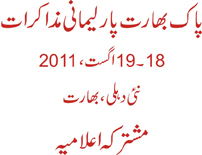
|
|
| |
|
|
| |

|
|
| |
|
|
| |

|
|
| |
|
|
| |

|
|
| |
|
|
| |

|
|
| |
|
|
| |

|
|
| |
|
|
| |

|
|
| |
|
|
| |

|
|
| |
|
|
| |

|
|
| |
|
|
| |
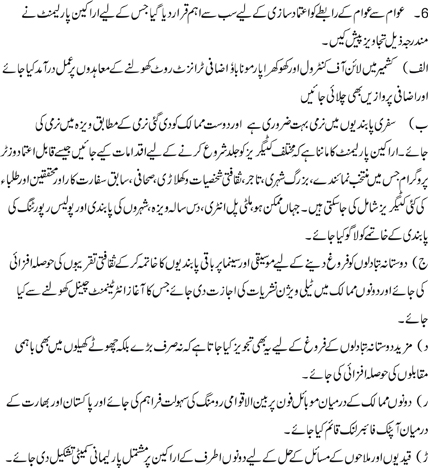
|
|
| |
|
|
| |
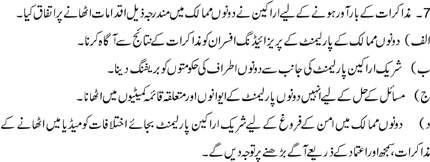
|
|
| |
|
|
| |

|
|
| |
|
|
| |

|
|
| |
|
|
| |
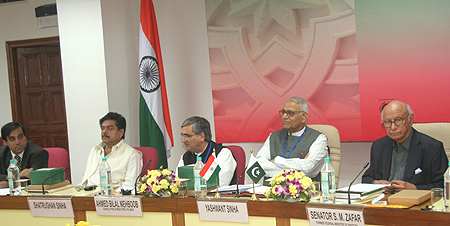
|
|
| |
|
|
| |
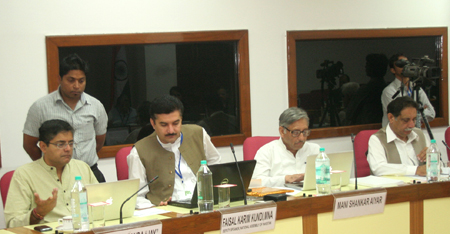
|
|
| |
|
|
| |
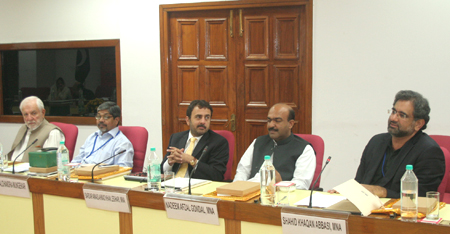
|
|
| |
|
|
| |
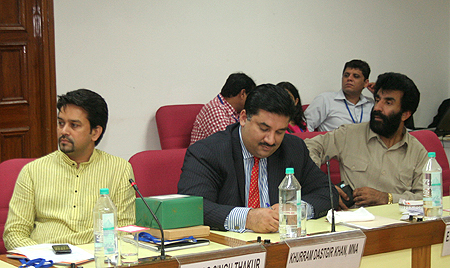
|
|
| |
|
|
| |
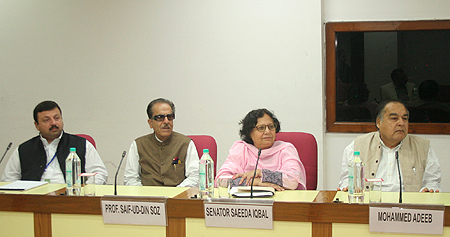
|
|
|
|
|
|
|
|
|